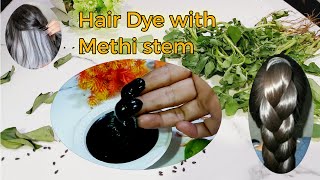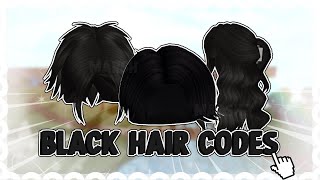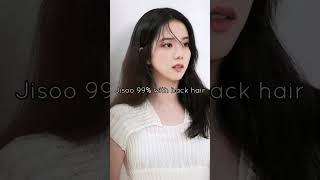Why Black Hair Is Still Stigmatised | Emma Dabiri
- Posted on 04 June, 2020
- Trending
- By Anonymous
Emma Dabiri explains the history of policing black hair, from pre-colonial Africa to present-day restrictive school policies. Order your copy of Don't Touch My Hair in paperback: https://bit.ly/307vn2i or audiobook: https://amzn.to/371dR1k
Sign Emma's petition to amend the UK Equality Act to include hair: http://chng.it/7txFMSWcrQ
From women's solidarity and friendship to forgotten African scholars and the dubious provenance of Kim Kardashian's braids, the scope of black hairstyling ranges from pop culture to cosmology, from prehistoric times to the (afro)futuristic. Uncovering sophisticated indigenous mathematical systems in black hairstyles, alongside styles that served as secret intelligence networks leading enslaved Africans to freedom, Don't Touch My Hair proves that far from being only hair, black hairstyling culture can be understood as an allegory for black oppression and, ultimately, liberation.
-------------------------------------------------------------------------
Subscribe to the Penguin channel:
http://po.st/SubscribePenguinYouTube
Follow us here:
Twitter | http://www.twitter.com/penguinukbooks
Website | http://www.penguin.co.uk
Instagram | http://www.instagram.com/penguinukbook...
Facebook | http://www.facebook.com/penguinbooks
My name is Emma debris and I am a broadcaster and author of don't touch my hair Thanks. There are a number of reasons why the history and the contemporary reality of afro hair is so is so important, but one of those really stems from the stigma that exists around our hair and where that stigma comes from for Africans in Africa before slavery before colonialism. There would have been, and there was no stigma attached to having afro textured hair to having afro hair. There was no concept of good hair being a type of hair that more closely resembles European hair. This idea of there being a stigma related to it, emerges directly from the transatlantic slave trade and the dehumanization of Africans that was necessary to justify their wide scale. Enslavement and part of that. The humanization process was to say that african people and people of African descent were not fully human, and one of the ways in which that was done was through. Our hair, which it was claimed, was not actually hair. So it was European people that had hair and African people had wool and, of course, that association with the characteristics of an animal with livestock goes goes a long way in justifying the exploitation of people. In that way, look these aren't really they're, not really people. They actually have characteristics more in common with livestock. They can be used on our farms on our plantations, so that negativity around our hair really stems from that history, and that was maintained throughout black people's experiences. In America and in the Caribbean and in the Diaspora and those attitudes were also introduced to the continent through colonialism and through the the global media and European beauty standards which always presented black features, and particularly our hair, as not only other but as far far lesser. These are not issues that belong to some far-flung distant history, but they are ideas that are still extremely potent today, it's only as recently as from kind of 2010-2011 that you start to see black women rejecting this imposed, beauty, standard and re, discovering the the the beauty Of our of our natural hair - and it's only very recently that that is becoming becoming normalized again, which brings us to today whereby fails of hair relaxers. The products that are used to chemically straighten afro hair have slumped dramatically and have gone from being one of the best selling products in the multi billion afro hair industry to being by far one of the one of the smallest smaller segments. Now that's really really positive, but what we've seen happen kind of in parallel with that is this backlash against our hair and particularly in schools. We have seen a huge rise in punishments, regulatory policies and procedures and school exclusions for black children, mixed children, children of African descent, whose natural hair is deemed unsuitable for the school environment amongst these school petitions, one of the hairstyles that comes up again and again as Problematic are shaved. Styles in the black community is entirely normal for boys and men to have tight, leash, Oren and Barbara hair. These tightly shorn hairstyles keep daily maintenance to more of a minimum but also conform to norms in black culture, about tidiness and present ability a case that was in the media last year, one of many involved a five year old boy who was excluded from school because The school deemed his hair, too short, he was not allowed to return to school until his hair grew back and covered his scalp. However, the way his hair was cut is the way that my son wears his hair is the way that many, many black and mixed-race boys wear their hair. Not only have we not seen a decline in these cases, but they seem to be on the increase. The news is full of cases of black and mixed children. Who'Ve been excluded from school for doing nothing more than daring to wear their hair as it grows from their heads or in using the protective styles that are necessary for the maintenance and health of our hair. In 2019, world afro day commissioned a report to examine this area more fully and it found that anti afro hair policies had risen by over 66 percent. If you kind of flipped the script and reverse everything, imagine my hair was the norm and the school policy reflected that norm. Everybody who went to the school was told that they had to make their hair resemble mine, even if that was virtually impossible to do and could only be achieved by painful and dangerous chemical procedures. I don't want to know about that. I don't care how you do it, but you just need to do it. This is the school policy. This is the the norm. You have to make your hair look like an afro. That would be absolutely ludicrous but effectively. That is what black children are being told when they are being forced to make their hair conform to standards that have emerged to suit the characteristics of European hair. It'S been really wonderful for me to see all of the conversations that my hair has started. All of the different types of people who have gotten in touch with me just saying that it's really changed their understanding of lots of different issues and hearing that there are schools that have changed their uniform policy from reading the book and coming to realize that policy. Around hair, in particular, was disproportionately negatively impacting on black and mixed pupils. So really, I just hope I hope, there's more of that and that the very necessary change that needs to happen is forthcoming. You





Comments
Bertha Shyngle: The problem with some of us black people, we need to accept and love who we are...if you don't love yourself how can you be loved. We all are not the same.We have to accept that we are all different.
Bertha Shyngle: Black hair is beautiful ,attractive and versatile...I proudly rock mine and I feel blessed Be yourself
B L: I'm shocked that the child was suspended from school for wearing a fade. At my predominantly Black school in the 80s and 90s, every Black boy wore a fade. I'm speechless that the style could be deemed inappropriate in any way. Just wow.
Mo Butter: Brava! The mere fact that the “Crown Act” had to be activated..still makes me shake my head!
Gaby Triess: I've learned a few new things. Great video!
Lion Lock: What you can't have you either admire from afar or you envy. People do these in extremes.
Beverley Husbands: I have worn my hair in a natural form since the late 1980s
Sveva Bloomsbury: Black hair is amazing! I have a pale complexion but wish I had this hair
life lover: Black hair is beutiful and so attractive.
Shelly Best: Love the info...love the hair
Riva: Kids are not only being excluded or suspended due to hairstyles (dreds, extensions, cornrows, and designs cut into the scalp), but teachers are taking actually taking it upon themselves to cut Black and mixed children's hair in school with NO permission. Crazy!!! They cut a wrestler's hair right during a meet, they cut a Hispanic/black boy's hair because he had a design in it and his father owned a barbershop and would have done it himself if he had been informed about it first. They sent a Black girl home from a private religious school for having extensions (who is looking that closely?). The worst was when a White child cut a mixed girl's hair on the bus, when the parent complained, but took her to a hairdresser who gave her an asymmetrical cut to fix it. The next day, the teacher cut the girl's hair AGAIN, I guess to even it out (without permission of course). The parents are suing. This is an atrocity how our children are being treated in this day and age.
Hammada Jnr: Love this
L S: Her hair looks cool I like it
viraj mittal: This issue is so common that nobody talks about it.
Fola the Wizard of Sound: 2:45 she totally forgot about the 60's-70's...
TW Documentry: Impressive
Ciarra Schlutow: Love all that!)
мαяιє: She's so gorgeous mashallah
A.J. Young: We're all human. Different races, cultures, colors, textures, hues, flavors, it doesn't matter, we're still all human. Shaming and excluding people because their hair is shaved, or curly, or "other" is BULL. Absolute bullshit. Be yourself. Heck what others think
Naouar sghuri:
MrGenedancingmachine: black hair still being stigmatised isn't the issue with this woman, the issue is that she didn't have an original idea in her head, so she looked to her american black hysterical counterparts and picked one of their usual moans and wrote a book about it
Mutha Afrika 🌍: I HATE that mop look in mess. I don't. EVEN like long wigs esp straight ones. I like that Betty poop hair